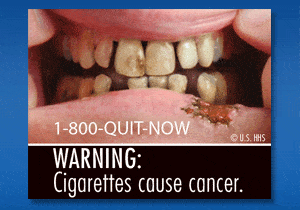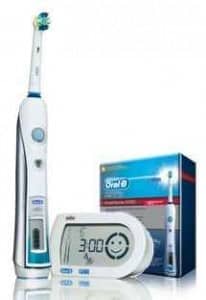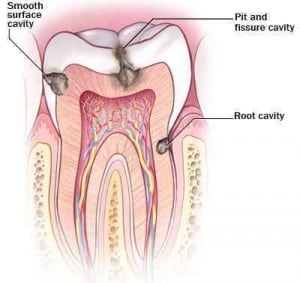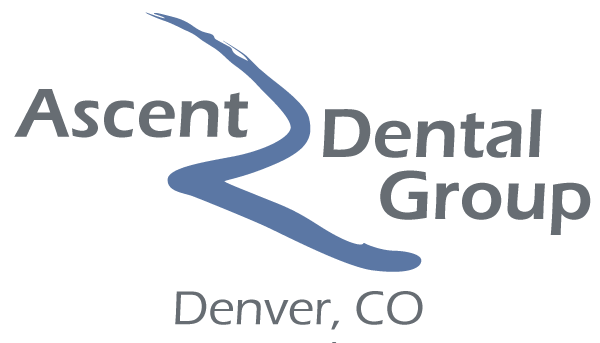What is Sedation Dentistry and How Does it Work?
There are millions of Americans who are terrified of going to a dentist, and for that reason, they suffer unnecessarily with dental problems that could have been prevented altogether with preventative dental care. If you are one of those people who is horrified by the thought of drills, dental work and the whole experience of sitting in that chair to have your teeth worked on, you are not alone. Thankfully, however, there have been a number of advances in the world of dentistry in recent years; these advances help make dental work less painful, and they have changed the way many people feel about going to a dentist. If you have not been to a dentist in years, or even decades, you will be absolutely amazed at how much less stressful and painful it is to have dental work done these days. Long gone are the days of sitting in a dentist’s chair for hours while he or she pulled teeth, performed root canals or filled cavities. Now, many dental procedures are completely pain and free and can be done in less than an hour; even better, many of today’s dental procedures don’t even require the use of the dreaded “dentist drill,” the sound of which can cause people to panic and become filled with fear. What is Sedation Dentistry? Sedation dentistry has changed the way people feel about going to the dentist. Sedation dentistry, also referred to as “sleep dentistry,” uses medication to help patients relax during dental procedures—making the procedures more tolerable for the patient and easier for the dentist to perform. While sedation dentistry if often referred to as “sleep dentistry,” that term is not really accurate because patients are not really asleep during the procedures. Except for those who are under general anesthesia, patients are aware for procedures when they visit a sedation dentist. If you are looking for a cosmetic dentist in Denver, be sure you choose one that uses sedation dentistry to make the procedures less painful and stressful for you. In sedation dentistry, different types and levels of sedation are used depending on the patient’s ability to withstand dental work and what procedures are necessary. Dr. Jeff Johnston, cosmetic dentist in Denver, will discuss your sedation options with you and let you know which one will be best for your needs. If you ever have any questions about sedation dentistry and how it works, or if you’d like to go ahead and schedule an appointment to have some much-needed dental work performed, please contact Ascent Dental Group today.
How Often Should You Visit the Dentist?
As with all health recommendations, there is no single rule for how often you should have your regular dental checkups and cleanings that works for everyone. For decades, dentists have generally recommended that people should have routine cleanings every six months or so (twice a year), but this is just a general guideline and may not hold for everyone. In fact, there are some people we know need to see the dentist more often than this to keep their teeth and gums healthy. You Should Visit the Dentist More Often If Some health conditions and lifestyle choices can put your teeth and gums at risk. More frequent checkups can help safeguard your oral health and prevent tooth loss. You may want to visit your dentist more often if you: Have diabetes Are a smoker Have a weakened immune system Have gum disease Have cavities every time you go to the dentist We will talk to you about your health and mouth conditions and whether you should make more regular checkups. Should You Visit the Dentist Now? You may be wondering whether it’s time to schedule a visit to your dentist now. You should see the dentist if you are experiencing: Bleeding, red, or sensitive gums Constant toothaches Temperature or pressure sensitivity Loose teeth Localized hot spot or puss-filled spot on your gums Unexplained headaches that have started recently You should also contact your dentist if you have any other concerns about the health of your teeth and gums. We will talk to you about potential health conditions and whether you should come in to see us. Many dental problems will worsen if left untreated, so it’s better to be safe than sorry. To schedule an appointment with Ascent Dental in the Cherry Creek area of Denver, please call (303) 975-6987 or email us today.
Deep Cleaning / Dental Scaling

When teeth and gums don’t get cleaned properly, the food particles mix with bacteria in your mouth and develop a soft substance called plaque. This plaque if not removed can turn into a harder substance known as dental tartar or calculus. If tartar is still not removed, it start impinging on the gums and create a seperation between the gums and the tooth. Once this seperation occurs, it allows for more food particles and bacteria to work its way down into the gum. The bacteria secrete waste from eating your microscopic food particles that can destroy gums and bone around the tooth. Once this sequence is established, brushing or flossing will not help remove this. A dental deep cleaning or Scaling and root planing procedure is needed. This is where dental professionals such as a dentist or dental hygienist takes their instruments and goes under the gumline to remove this structure of tartar. Once destruction of the bone has occured, the bone cannot grow back. If enough bone gets destroyed around the tooth, the tooth then loses its support and removal of the tooth is indicated. We commonly find that missing rountine cleanings (depending on one’s dental hygiene) over 1-2 yrs will lead to this. Its very important to see a dentist and have your teeth professionally cleaned so this process does not occur. I have attached a diagram that describes this. – Dr. Johnston
Reasons skipping the dentist is bad for you
While most don’t love going to the dentist, we try our hardest to make ourselves do it twice a year. But for some reason, we skip the dentist more than any of our other health-related appointments. According to the Centers for Disease Control, 71.4 percent of women over age 18 had their teeth cleaned in 2008. That means more than a quarter of all women are skipping the dentist! Here are exactly what health benefits you are missing out on when you skip a cleaning.(Motivation to set up an appointment?) Here are some non-tooth-related health conditions that may be spotted or prevented by a dentist (or go undiagnosed if you skip an appointment). 1. Heart disease. A new study from researchers at Berkeley found that women who get dental care may reduce their risk of heart disease by one-third. It’s simple – bacteria in the gums, especially bleeding gums can travel to your heart and set up residence. 2. Oral Cancer.Often times oral cancer are asymptomatic. We all have oral cancer risk factors. Smokers (duh) and anyone who consumes more than one alcoholic beverage on a daily basis. New studies are showing HPV from oral sex are very high oral cancer causing risk factors. 3. Nutritional deficiencies. By looking at your tongue and gums, we can tell if you are lacking in certain vitamins and nutrients. One thing they look for is pale tongue, which may indicate an iron deficiency. While its uncommon in our area in Denver, it can be detected. 4. Diabetes. The condition of your teeth and gums may point to diabetes. Uncontrolled gum bleeding after cleanings and other dental observations can lead to a diabetic diagnosis. Just know that the more you skip out on your dentist, the more damage you can do to the rest of your body. More and more studies are finding systemic links coming from the oral cavity. Take care of those teeth and gums and they will take care of you!
Cigarette Warning Labels

Cigarette Health Warnings Beginning September 2012, FDA will require larger, more prominent cigarette health warnings on all cigarette packaging and advertisements in the United States. These warnings mark the first change in cigarette warnings in more than 25 years and are a significant advancement in communicating the dangers of smoking. Effects of smoking on your teeth is one of the warnings. Click here to read more and see all the warnings…
Oral B ProfessionalCare SmartSeries 5000 Kit Now Avaliable!

We are now selling Oral B’s best electric toothbrush. Oral-B’s most technologically advanced toothbrush, ProfessionalCare SmartSeries 5000 with SmartGuide provides Oral-B’s most advanced cleaning technology for ultimate plaque removal and also features a wireless SmartGuide. Separate, wireless SmartGuide helps maximize brushing performance Deep Clean mode removes up to 99.7% of plaque from hard-to-reach areas* Pressure sensor stops pulsations when brushing too hard Gentle on teeth and gums Improves gum health better than Sonicare FlexCare Offers outstanding whitening and polishing in 3 weeks** 5 modes: Daily Clean, Sensitive, Whitening, Massage, Deep Clean Oral-B is the #1 dentist-recommended toothbrush brand worldwide Also includes Crest Bag, Toothpaste, Rinse and Floss We are selling these for $125 and it comes with a $15 mail in rebate so your price is $110 total. Compare this to 159.99 at Target.com. We feel this is a great deal and toothbrush. Give your mouth the clean it deserves!
Most Dental Problems are Silent

Daily, I get asked from patients, if I am not having pain, why do I have to get a filling? Like cancer and heart disease in the body, most dental problems are silent. Lets look at a few silent dental problems. Cavities When a cavity starts to hurt, that is when it is almost too late to just simply do a filling! Cavities do no hurt until they get close to the nerve in the tooth. The tooth has 2 layers to protect the nerve, the enamel and the dentin. The enamel is one of the hardest elements of the human body, its amazing to think microscopic bacteria can destroy it. Once the bacteria sets up in the dentin of the tooth, the tooth can literally become an eggshell and still look like nothing is wrong. The longer the bacteria sit inside the tooth, the more they destroy by their acid secretion/waste. The bacteria work their way through the dentin to the nerve. This is when pain can start. By then, the nerve has bacteria in it and an infection develops at the root tip of the tooth. The only way to save this tooth now is a root canal and crown, when a filling would have been more simple and cost effective. The assumption is if the tooth doesn’t hurt, it doesn’t need to be fixed Gum Disease Gum Disease is bacteria, plaque and tartar, that develops under the gums. The bacteria also secrete a substance that can kill and destroy bone structure around the teeth. As painful as that sounds, it can present no pain. With destroyed bone around the teeth, teeth can eventually get lose and fall out. Generally, this process can take 5-15 years, but can also happen rapidly, depending on diet, hygiene, bacteria levels in the mouth, etc. Existing Root Canals Once a root canal is completed, there is no more nerve in the tooth. At the bottom of the tooth (the root tip) is where a infection can set up. Bone doesn’t have nerves like tissue does, so therefor if there is an infection underneath a root canal, it can’t be felt. Once this gets to a large level, prognosis of retreating the root can decrease. Implants Dental implants can get gum disease around them and fail as well. Anytime a dental implant becomes loose, its a failure. So, the point of this blog is for me to show you examples of why and how most dental problems are silent. After any dental work is completed it should be checked yearly with an x-ray. The more dental work you have completed, the more work it takes to keep the work lasting. Don’t take chances and see a dentist routinely, so we can get to the problem, before other major problems creep up on you.
Cleanings Only?
Cleanings Only? 11/6/2010 We have had a number of calls to the office asking us if we did cleanings only, as a new patient. When our reply is no, they get upset, say their goodbyes and move on. I want to take a moment and explain why our office doesn’t do cleanings only. If seen as a patient for the first time, total dental care is our responsibility the moment you walk in the office. If we do a cleaning only, its possible an abnormal dental condition could be overlooked. We take dental radiographs to aide in the detection of abnormalities. If dental radiographs are not taken, again an abnormal dental condition could be neglected to be detected. It is in your best interest to have a exam and dental radiographs completed with your first visit with us, as this is the only way we can give you an accurate diagnosis and description of your dental health. We want you to receive the best care possible with us and to know we treat everyone individually as we are all unique. We ask for your understanding. It is for these reasons, our standard of care is set to involve dental radiographs and an exam with our cleanings. If there are further questions on this subject, don’t hesitate to contact us for further information. -Jeff Johnston, DDS
